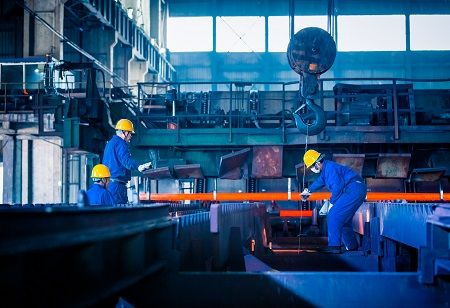
Asia's factory activity slowed due to weaker demand from China and the looming threat of U.S. tariffs. The euro zone's industrial sector, battered by a lack of growth for over two years, showed some signs of stabilization in January but global factory activity faced headwinds.
Global markets fell sharply on Monday after U.S. President Donald Trump instituted sweeping tariffs on imports from Mexico, Canada, and China.
In the Eurozone, the last manufacturing Purchasing Managers' Index for January remained at 46.6 for S&P Global, closer than ever to a mark of 50 that divided growth from contraction. The latter was due to optimism over the possibilities of cuts in interest rates. Nordea Economists said that while growth is anemic, consumers may boost their spending because of lower interest rates and strong real wage growth.
Eurozone inflation edged up a bit, but that had little impact on expectations that the European Central Bank, which cut rates to 2.75% last week, will lower rates three more times this year. Germany and France, the euro zone's two largest economies, saw a slight easing in their manufacturing downturn, but the UK, outside the EU, continued to face a tough month with falling output, new orders, and employment.
In Asia, factory activity in China expanded at a slower pace in January, with staffing levels falling at the fastest rate in nearly five years. Japan's manufacturing sector contracted at the fastest pace in 10 months, and other Asian nations like Taiwan and the Philippines were affected by slowdowns due to global trade uncertainty. However, India's factory activity rose at the fastest pace in six months due to strong demand and output.
Eurozone managers' optimism about the future has moved above its long-term average, despite concerns over US tariffs. However, comments from President Trump on Sunday regarding imposing tariffs on the EU may reverse that optimism, where he criticized the bloc's trade policies.

